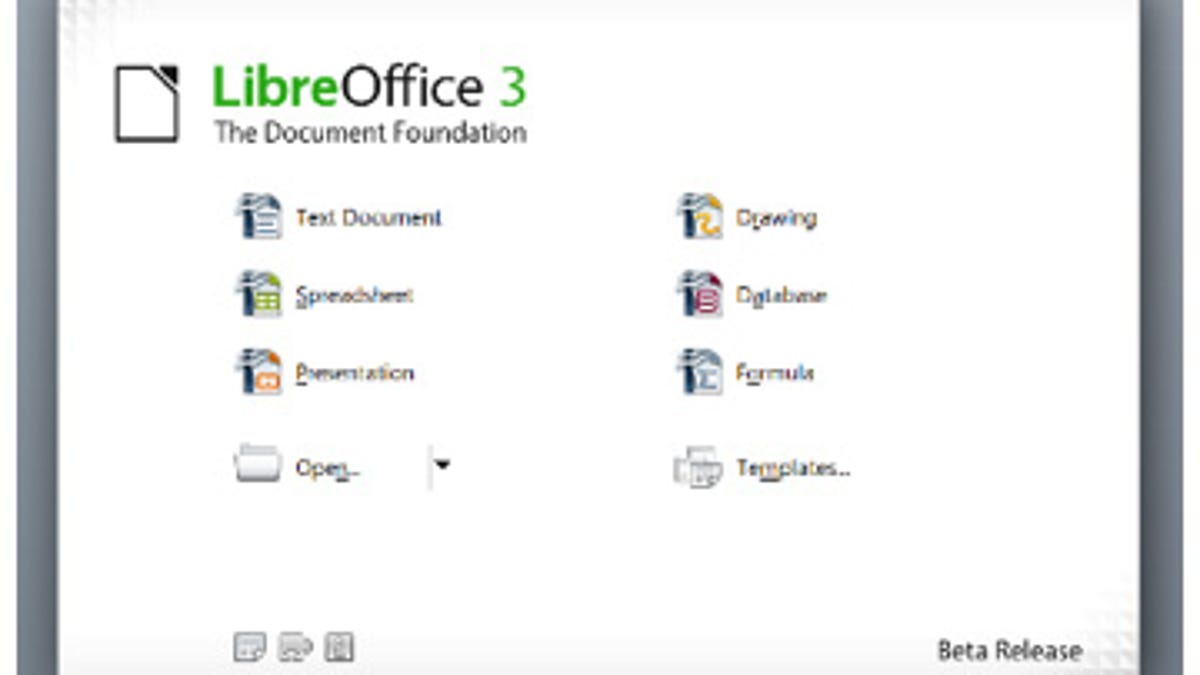Oracle bypassed: Programmers fork OpenOffice
OpenOffice.org fans strike out on their own with the Document Foundation and LibreOffice--without Oracle's backing.

A group of programmers has forked OpenOffice.org, the open-source rival to Microsoft Office that Oracle acquired when it bought Sun Microsystems.
The group, called the Document Foundation, published beta versions of its software, called LibreOffice for download on Tuesday. And although the group invited Oracle to offer its OpenOffice trademark, they made it clear they're willing to proceed without the software and now hardware company.
"Developers are invited to join the project and contribute to the code in the new friendly and open environment, to shape the future of office productivity suites alongside contributors who translate, test, document, support, and promote the software," the group said in a statement.
Wait--what about Oracle, the company that inherited the core OpenOffice programmers and still owns the project's copyrights? Well, they're welcome to come along if they want.
"The OpenOffice.org trademark is owned by Oracle Corporation. Our hope is that Oracle will donate this to the foundation, along with the other assets it holds in trust for the community, in due course, once legal etc. issues are resolved. However, we need to continue work in the meantime," the group said in an FAQ.
Niceties aside, the move is another vote of no confidence from open-source advocates in Oracle's handling of assets it acquired from Sun. The OpenSolaris Governing Board disbanded after Oracle disengaged from open-source work involving the Unix operating system. What will happen with the open-source Java and MySQL projects remains somewhat unclear at this stage.
Oracle didn't respond to a request for comment.
Other organizations, though, were willing to endorse the foundation.
Ubuntu, Red Hat, and Novell will include LibreOffice in their versions of Linux, according to the foundation's announcement. Linux hasn't had too much influence beyond programmers and the technically advanced, but the endorsements do carry weight and ensure LibreOffice will get at least some traction.
The foundation also secured endorsements from Google, which said it would participate. And Richard Stallman, who as president of the Free Software Foundation laid many of the intellectual and practical foundations for the free and open-source software movements, said he hopes "the LibreOffice developers and the Oracle-employed developers of OpenOffice will be able to cooperate on development of the body of the code."
With open-source software, the source code that underlies a software project can be seen, changed, and shared by anyone. However, in this case, Oracle owns the copyright to the software.
OpenOffice.org, formerly called Star Office before Sun acquired it and released it as open-source software, has attained a measure of popularity as an alternative to Microsoft Office. Although it helped catalyze a movement to help liberate customer data from proprietary file formats, OpenOffice.org has largely languished.
Today, the bigger competitive challenge to Office is Google Docs, part of the Google Apps suite that Google lets customers use in premium form for a subscription cost of $50 per user per year. Its Web-based editing abilities are somewhat primitive, but Google Apps includes a stronger draw in the form of the Gmail e-mail service tailored to a customer's domain. Microsoft is answering Google Docs with an online version of Office.
Document Foundation members include a number of individuals involved in OpenOffice.org, many of them helping to adapt it with support for various languages.
Andy Updegrove, an attorney who was involved in the effort to foster OpenOffice's file formats as the OpenDocument Format standard, lauded the new foundation and said the software project failed to meet its potential under Sun stewardship.
"The OpenOffice suite could have become so much more. As with other single-company controlled efforts in the past...other companies that could have, and would have, made significant contributions of personnel, funding, and promotion stood aside," Updegrove said in a blog post.
The lesson is clear, Updegrove added: "Corporations that wish to encourage wide participation by the development community must spin their projects out as independent legal entities. Only by doing so can they guarantee to those they encourage to participate that their efforts will not later be subverted or financially abandoned."

